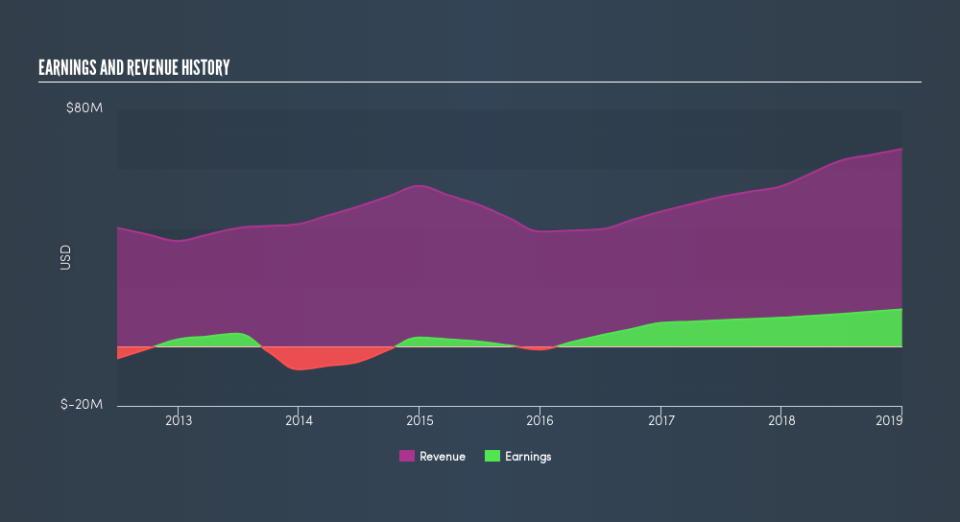Does Sylvania Platinum Limited (LON:SLP) Have A Volatile Share Price?

Want to participate in a research study? Help shape the future of investing tools and earn a $60 gift card!
If you're interested in Sylvania Platinum Limited (LON:SLP), then you might want to consider its beta (a measure of share price volatility) in order to understand how the stock could impact your portfolio. Modern finance theory considers volatility to be a measure of risk, and there are two main types of price volatility. The first type is company specific volatility. Investors use diversification across uncorrelated stocks to reduce this kind of price volatility across the portfolio. The other type, which cannot be diversified away, is the volatility of the entire market. Every stock in the market is exposed to this volatility, which is linked to the fact that stocks prices are correlated in an efficient market.
Some stocks are more sensitive to general market forces than others. Beta is a widely used metric to measure a stock's exposure to market risk (volatility). Before we go on, it's worth noting that Warren Buffett pointed out in his 2014 letter to shareholders that 'volatility is far from synonymous with risk.' Having said that, beta can still be rather useful. The first thing to understand about beta is that the beta of the overall market is one. Any stock with a beta of greater than one is considered more volatile than the market, while those with a beta below one are either less volatile or poorly correlated with the market.
See our latest analysis for Sylvania Platinum
What SLP's beta value tells investors
Given that it has a beta of 0.83, we can surmise that the Sylvania Platinum share price has not been strongly impacted by broader market volatility (over the last 5 years). This suggests that including it in your portfolio will reduce volatility arising from broader market movements, assuming your portfolio's weighted average beta is higher than 0.83. Beta is worth considering, but it's also important to consider whether Sylvania Platinum is growing earnings and revenue. You can take a look for yourself, below.
Could SLP's size cause it to be more volatile?
Sylvania Platinum is a noticeably small company, with a market capitalisation of UK£87m. Most companies this size are not always actively traded. Very small companies often have a low beta value because their share prices are not well correlated with market volatility. This could be because the price is reacting to company specific events. Alternatively, the shares may not be actively traded.
What this means for you:
Since Sylvania Platinum is not heavily influenced by market moves, its share price is probably far more dependend on company specific developments. It could pay to take a closer look at metrics such as revenue growth, earnings growth, and debt. In order to fully understand whether SLP is a good investment for you, we also need to consider important company-specific fundamentals such as Sylvania Platinum’s financial health and performance track record. I urge you to continue your research by taking a look at the following:
Financial Health: Are SLP’s operations financially sustainable? Balance sheets can be hard to analyze, which is why we’ve done it for you. Check out our financial health checks here.
Past Track Record: Has SLP been consistently performing well irrespective of the ups and downs in the market? Go into more detail in the past performance analysis and take a look at the free visual representations of SLP's historicals for more clarity.
Other High-Performing Stocks: Are there other stocks that provide better prospects with proven track records? Explore our free list of these great stocks here.
We aim to bring you long-term focused research analysis driven by fundamental data. Note that our analysis may not factor in the latest price-sensitive company announcements or qualitative material.
If you spot an error that warrants correction, please contact the editor at editorial-team@simplywallst.com. This article by Simply Wall St is general in nature. It does not constitute a recommendation to buy or sell any stock, and does not take account of your objectives, or your financial situation. Simply Wall St has no position in the stocks mentioned. Thank you for reading.

 Yahoo Finance
Yahoo Finance 
